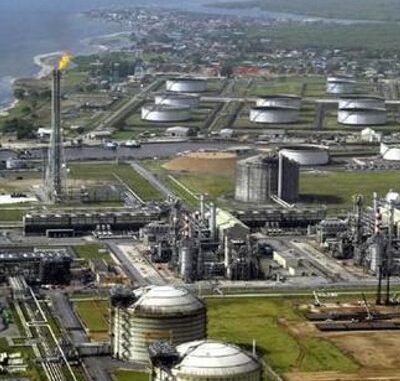
Indications have emerged that the Nigerian economy is on its way out of recession considering the 2016 overall and last quarter Gross Domestic Product (GNP) reports.
A review of the recent GDP figures released today by the National Bureau of Statistics, NBS, show a contraction of -1.30% in the fourth quarter of 2016, translating into an estimated economic growth rate of -1.51% for the full year.
Besides, the Nigerian economy actually performed better overall last year as the growth rate was higher with a contraction at -1.5% than the -1.8% predicted by the IMF.
This raised the hope that the recession may have bottom up with the improving trends in several key sectors of the economy including agriculture and mining.
According to the NBS, the oil sector declined by -12.38 per cent on a year on year basis, this was a relative improvement compared to the third quarter when the decline amounted to -22.01 per cent.
“This outcome was due mainly to increases in production such that the quarter on quarter growth for the oil sector between the third and fourth quarters was 8.07 per cent.
The non-oil sector however declined by 0.33 per cent after showing some resilience in the third quarter when it grew by 0.03 per cent at the height of the recession.
The data show that agriculture grew at 4.03 per cent in the fourth quarter of 2016 which was a marginal decrease from the 4.54 per cent growth in the third quarter.
This is mainly because agriculture (especially crop production, which accounts for the bulk of agricultural production) is highly seasonal, with growth in the third quarter of the year usually higher than the others.
Nevertheless, the overall outcome for the year was that the agricultural sector grew by 4.11 per cent for the whole of 2016 which was higher than the figure of 3.72 per cent for 2015.
“The manufacturing sector actually grew on a quarter on quarter basis by 1.89 per cent but declined over the year by 4.32 per cent reflecting the problems that the sector faced in the course of the year due to a combination of factors including the depreciation in the exchange rate and higher energy costs.
The metal ores sub-sector grew by 7.03% in Q4 of 2016 as compared to 6.93% in the last quarter of 2015, thus justifying the priority that the Federal Government continues to give to solid minerals.
The services sector, which accounted for 53.55 per cent of GDP in 2016, experienced a decline in growth by -0.82 per cent over the year as compared to a growth of 4.78 per cent in 2015.
This slowdown in the services sector arose from generally fragile economic conditions.
This is because its fortunes depend to a large extent on consumer spending and government expenditure which were both adversely affected by difficult economic conditions. , NBS said.
The President Muhammadu Buhari’s administration is also hopeful that with the ongoing series of engagement with the oil-producing communities of the Niger Delta, the increased oil production output would be sustained.
In a similar vein, the ongoing implementation of the Social Investment Programmes, the significant infrastructural spending of the Federal Government, and a possible early legislative passage of the 2017 budget are all expected to spur a positive multiplier effect on the Nigerian economy.
The administration will not relent in its determined effort and its comprehensive approach to bring about the full recovery of the Nigerian economy and set it on a solid path of sustainable growth.
“Our work continues and we renew the pledge to do it with diligence, and the firm commitment it deserves.’’
Source – NAN

Google Maps Seo